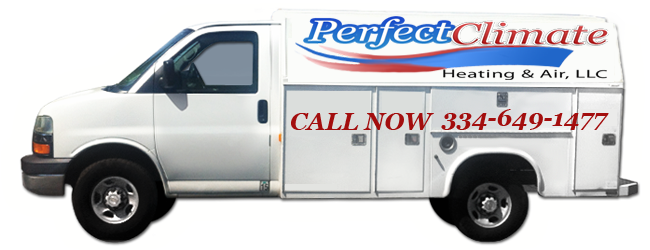Frequently Asked Questions
We all may experience problems with our heating and air conditioning system that leave us less-than-comfortable. Often, the cause is simple; a switch position or filter change. This page lists some common residential problems and offers suggestions to try solving those problems without needing to call a serviceman. It also lists some frequently asked questions related to heating and air conditioning that may be useful in maintaining an efficient system. Of course, annual checkups and servicing by a qualified technician can prevent problems and prolong the life of your heating and air conditioning systems. We do recommend this, but in the meantime, follow these suggestions in the order listed below to get the best from your system.
If you have additional questions not listed below, please contact us.
Caution: Do NOT remove protective covers from equipment. Injury or death from electric shock may occur.
- 1. What does S.E.E.R. stand for?
-
Seasonal Energy Efficiency Ratio. All manufacturers establish S.E.E.R. ratings at 95 degrees. Important! Actual unit capacity at high temperature should be considered along with the S.E.E.R. rating.
- 2. What is the SEER Rating?
-
The SEER (seasonal energy efficiency ratio) is how the efficiency of your heating and cooling equipment is measured. The SEER is the amount of cooling your system will deliver per dollar spent on electricity, as compared to other systems. For example, a 3-ton unit may have a SEER efficiency rating of 13, 14, or 15. The higher the SEER the more efficient the system will be. The SEER rating of any given unit can range anywhere from 13 to 21.
- 3. Why is the SEER rating on the Energy Guide different than what my dealer quoted?
-
Each split system cooling unit has a nominal SEER rating. This rating can be increased with the upgrade of the same series indoor unit. The SEER rating of a system is derived based on the combination of equipment installed in the home. The outdoor equipment (heat pump or air conditioner), as well as the indoor equipment (evaporator coil and furnace, or air handler), play a vital role in the total rating.
- 4. Which equipment will best fit my home?
-
There are many factors that affect the sizing and specifications of your system, including square footage, insulation, window surface and configuration, geographic location of your home, duct sizing and arrangement, and many others. Perfect Climate Heating and Air can perform an in-home load analysis to determine which equipment combinations will perfectly suit your home and your family's needs. Depending upon the construction of your home, one (1) ton of air conditioning can cool anywhere from 300 to 800 square feet of home. The only way to insure the size of the system you purchase will be large enough to cool your home, but not any larger than you need, is to have your home's individual heating and cooling needs evaluated by a licensed professional.
- 5. How do I determine the correct "Tonnage" (Ton) of A/C my home requires?
-
Tonnage is usually determined by square footage. The formula most commonly used is: every 500 sq ft = 1 Ton of a/c. However, the fact that a home has vaulted ceilings or is multi-level can also be a direct influence. To avoid under/over sizing a professional should be consulted.
- 6. What is involved in installing a new system?
-
If a system is being added to the home for the first time, most of the items noted in the previous question and answer may be required to install the new system. Besides the equipment, the most significant component is ductwork. The ductwork can be made of either metal or fiberglass. The ductwork needs to be properly sized to deliver the right amount of air to each room. A central air conditioning system uses supply and return ducts. The supply duct is attached to the outlet of the furnace or air handler and delivers air to individual zones in your home. We can determine the size of the ductwork going into a space by the amount of air that needs to be delivered to the space.
- 7. How can I lower my electricity bill?
-
A few recommendations are:
1) Install sun screens.
2) Draw shades and drapery on the east side in the morning and west side in the afternoon.
3) Ceiling fans can really help circulate the air. - 8. Some rooms in our house are too hot (or cold). Can this be fixed?
-
Certainly. There are a variety of causes for airflow problems. Sometimes the problems are due to a dirty filter, coil, and/or blower which results in reduced air flow passing through the air handler and causing the air to die off in the outer branches of the duct system. From time to time the duct work comes loose and a minor reattachment repair can solve the problem. In a lot of cases, there are duct design issues. In these cases, a professional from Perfect Climate Heating and Air should be called in to troubleshoot the situation. Solutions can range from some simple air balancing to replacement of ducts to advanced climate control systems such as a zone system.
- 9. When I finally decide to replace my A/C system how do I know what I need?
-
This is a commonly asked question and although the answer is not overly complicated there are certain questions we need to ask to provide you with the correct information.
1. What type of unit do you currently have? Roof-top/Ground, electric/gas, Tonnage, Brand/age of unit?
2. What part of town do you live and what is your Square Footage?
3. Where is the Air-Handler located in your house? (It's usually in a crawl-space, a closet, or a garage)
Typically...
If it's an electric roof-top...it's called a Packaged Heat-Pump.
If it's a gas roof-top...it's often called a Gas-Pac
If it's a split-system, electric...the outside unit is called a Heat-Pump Condenser
If it's a split-system, gas...the outside unit is called a Straight-Cool Condenser. - 10. Why should I have regular (or preventative) maintenance? And how often should I have it performed?
-
Your heating and cooling systems work incredibly hard to perform their functions for your home everyday. The constant stopping, starting and continual operation can wear down any machine if the proper care and maintenance is delayed. However, by performing regular maintenance, you can maximize the lifecycle of your heating or cooling unit and guard against many common equipment failures. Preventive maintenance inspections performed on a regular basis can uncover leaks, rust, rot, soot, frayed wires and corroded electrical contacts that the naked eye may not notice. You should have maintenance done on your system regularly to ensure maximum efficiency and allow prevent possible problems that may occur in the near future.
- 11. What equipment requires regular (or preventative) maintenance?
-
At least twice a year heat pumps and air conditioners require a professional tune-up. Because gas-fired equipment functions with greater efficiency, they only need to be serviced every other year. Inspections on boiler and furnace systems should include ductwork, pipes, dampers, valves, the chimney, registers, radiators, pumps, blowers, fuel lines, the gas meter, oil tank and every part of the actual furnace and boiler. Meanwhile, heat pump and air conditioning unit inspections should also include inspections of the fan, compressor, indoor coils, outdoor coils, line kits and refrigerant lines.
- 12. What is the life expectancy of my unit?
-
Our dependable products are among the longest lasting heating and cooling products available. For your specific equipment, there are many variables that affect life expectancy, and of course, the regularity of routine maintenance.
- 13.I need help troubleshooting a problem with my equipment.
-
As your local Bryant dealer, Perfect Climate Heating and Air is your troubleshooting expert, and is glad to help you. In addition, Bryant also provides a network of troubleshooting technicians at Bryant Distribution centers across the country which Perfect Climate Heating and Air will utilize to solve your concern. Should we encounter a situation that requires additional factory help, we will contact our factory supported Service Manager(s) for assistance.
- 14. What are the advantages of a programmable thermostat?
-
Since they are electronic, programmable thermostats are more accurate and efficient than thermostats that contain mercury. With programmable thermostats you can control the temperature in your home at different times of day without ever touching your thermostat. Because everything is automatic, you will never forget to change the setting on your own.
- 15. What is Bio Clean?
-
Bio Clean is a blend of bacteria and enzymes. The bacteria are natural, not genetically-engineered. The enzyme concentration is the most powerful on the market. Bio-Clean is non-poisonous. It creates no heat, no fumes, no boiling. It does not attack live tissue nor inorganic materials, only organic wastes like grease, hair, food particles, paper, cotton & sewage. This makes BIO-CLEAN safe for people, plumbing and the environment. BIO-CLEAN changes the waste particles into water, carbon dioxide and mineral ash which run harmlessly out of your waste system. These elements are then available for plant life.
Bio-Clean is EFFECTIVE
Within an hour after pouring the bacteria into the drain, the bacteria begin to eat their way into the waste that has accumulated on the sides and top of the drain pipe. This is their natural food. They digest the waste and spread throughout your system.
Maintenance Checklist
Schedule an Appointment

Need a Service Call or New System Installation?
We want to make it affordable and easy to have your HVAC or plumbing equipment serviced or repaired. Should you need a new system installation, we'll work with you to stay within your budget. Our knowledgeable staff is ready with the latest information about programs that you can take advantage of to save you money on new heating, cooling and plumbing equipment for your home.
Request an Appointment
Complete a Customer Care Satisfaction Survey
Financing Options

Fast, Simple, Smart
By financing the purchase and installation of your home comfort system, you'll be comfortable with low monthly payments and the following benefits:
- Simple application process
- Fast credit decisions
- Exclusive cardholder promotions
- Low minimum monthly payments*
- Convenient monthly online statements
- Manage and pay your bill online
*Subject to credit approval



